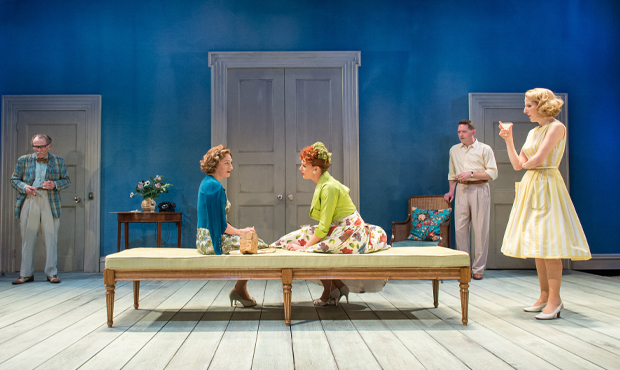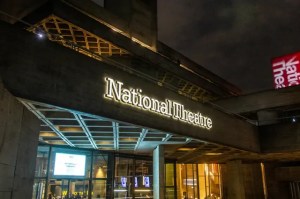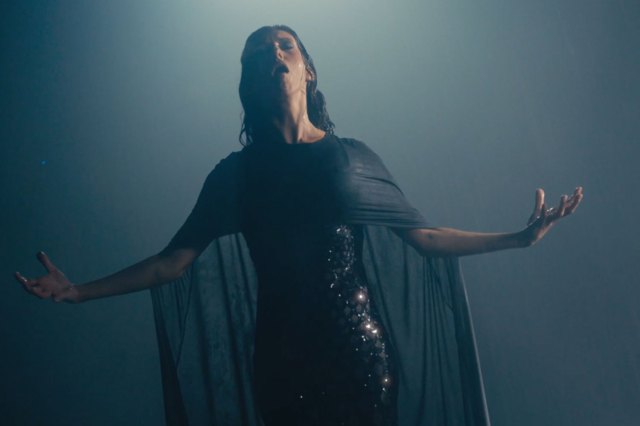Matt Trueman: do old plays need bringing back to life?
Matt Trueman asks whether updating, revisiting and reworking plays is always a good thing

© Manuel Harlan
Theatre is a here and now art-form – resolutely present-tense. Art galleries and libraries can become museums. Cinemas too, with seasons to celebrate old masters. Your Spotify account is an archive – each recording a sonic blast from the past, remastered but not remade. In concert, Beethoven is Beethoven is Beethoven. Hitchcock is Hitchcock is Hitchcock. Warhol is Warhol is Warhol. Shakespeare, meanwhile, is our contemporary. Theatre brings old plays into the present again and again and again.
Of course, it’s not as clear-cut as all that. Theatre can get stuck, just as other artforms can renew themselves. Walter Murphy can funk up Beethoven’s Fifth, the Chapman Brothers can ‘rectify’ Goya, Paul Feig can zap Ghostbusters into the 21st Century. The Mousetrap, meanwhile, is the same today as it was 64 years ago. Whodunnit? Who cares? Ours is a remake culture. In search of the new, we look to the past.
We talk of revivals for good reason. Old plays need bringing back to life. (Might that make The Mousetrap undead?) Once it was enough to filter a text through the present – to stage it as you found it, keeping one eye on today, re-energising it with fresh performances and scouring for contemporary resonance. You might cut the odd line or dress it up differently, but mostly, you left it alone.
Increasingly, though, we want our culture bespoke – curated to speak to the world we find ourselves in right now. The question programmers ask, perhaps more than ever, is ‘Why now?’ So why stop at reviving a play that chimes with the times? Why not update or adapt it? Hell, why not write an entirely new play driving at the same thing?
If we update everything aren’t we also somehow erasing it?
The question, then, is how far do you go? At the Almeida, Robert Icke’s given Uncle Vanya a contemporary polish – anglicising names, making dialogue colloquial and swapping stolen kisses for full-on floor fumbles – but he’s left Chekhov’s structure largely intact. Anthony Weigh, meanwhile, has transformed Jean Anouilh’s 1937 piece Le Voyager sans bagage for the Donmar – a new setting, new characters and a new ending too. No wonder he changed the title to Welcome Home, Captain Fox!
Partly, it’s a time thing. Today’s audiences, raised on a diet of jump-cuts and box sets, watch stories at a different speed. We make narrative leaps that once needed spelling out, and get ahead of old stories. To work, they need compressing and speeding up – reanimating. Perhaps it’s always been the case: Shakespeare’s five act plays became four, three, two, one. (What then? None? Just freeform scenes, loosely connected?)
"You’ve got an old thing," Katie Mitchell told me recently, "An old artefact; a very, very old book from 1901. It’s a really fragile, beautiful thing, printed at a different time when there was no technology. It’s like a voice from a long time ago and it’s really beautiful. Bits of it are really familiar, bits of it are totally unfamiliar. You think, Right, I’ve got to get that alive for audiences now. What am I going to do with this thing to make it really, really dynamic so that the curtain goes up and it’s as if it had been written yesterday, as if someone thought of it a minute ago."
Put another way, this is William Gaskill‘s old adage: "Treat new plays like classics and classics like new plays."
This is part of the reason that British theatre is so good right now. It feels fresh-minted and cutting-edge. Relevant. Resonant. Resurgent.
And yet, and yet. Part of me wonders whether all this isn’t self-indulgent – privileging our historical moment over everything else. It seems rampantly egotistical somehow, as if we, in all our modernity, know better than our forebears.
If we update everything aren’t we also somehow erasing it? Some might say no. The original still exists: a master copy ready to be reworked again and again. But if it’s only ever reworked, hasn’t it effectively disappeared? In updating, don’t we betray the specifics of a text?
Interviewing the director James Macdonald recently, I found myself convinced by his argument – and he uses Gaskill’s ‘classics like new plays’ mantra to back it up too. That, he said, means taking "the writer, the time in which they were writing and the culture with which they were arguing very seriously indeed."
Macdonald put it like this: "I’m interested in what an old play can tell me that isn’t now. My response to the times in which we’re living is that we’re endlessly losing track of history and of things that other ages can tell us. We’re forgetful. Our culture is forgetful."
"Rather than trying to drive the play towards us, and say what would this be to us now, I’m interested in what that was like then and what that might tell us about now."
It’s a different kind of fidelity, one that refuses to forget the lessons of history. As history repeats itself – economically, politically, artistically – that seems particularly pertinent.
Besides, we don’t divorce Jane Austen from her time, nor Rembrandt from his. Beethoven is Beethoven is Beethoven. These artists transcend their own time. They address the universal, and they don’t need translating to do so. Why, then, do playwrights? Why do audiences demand it?












